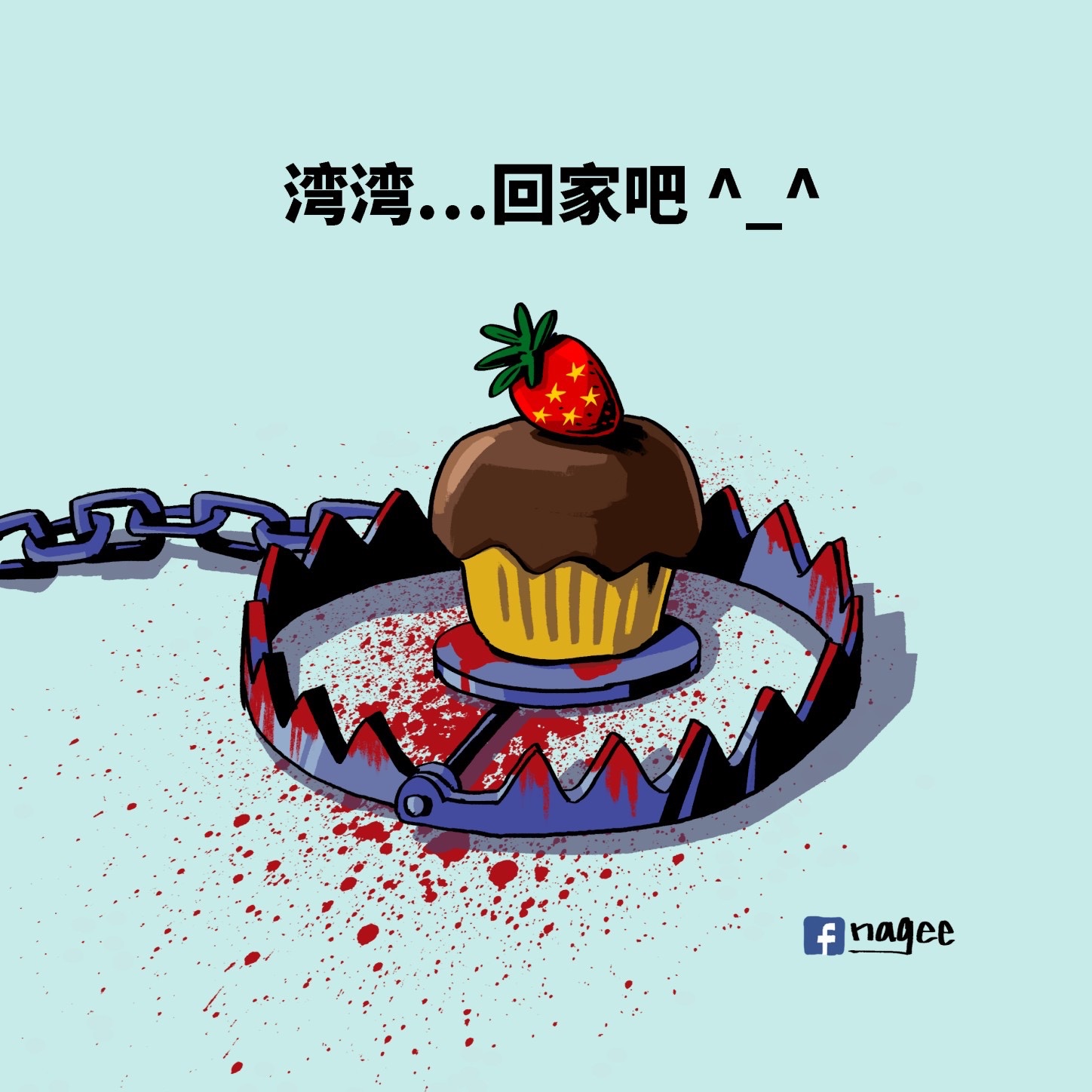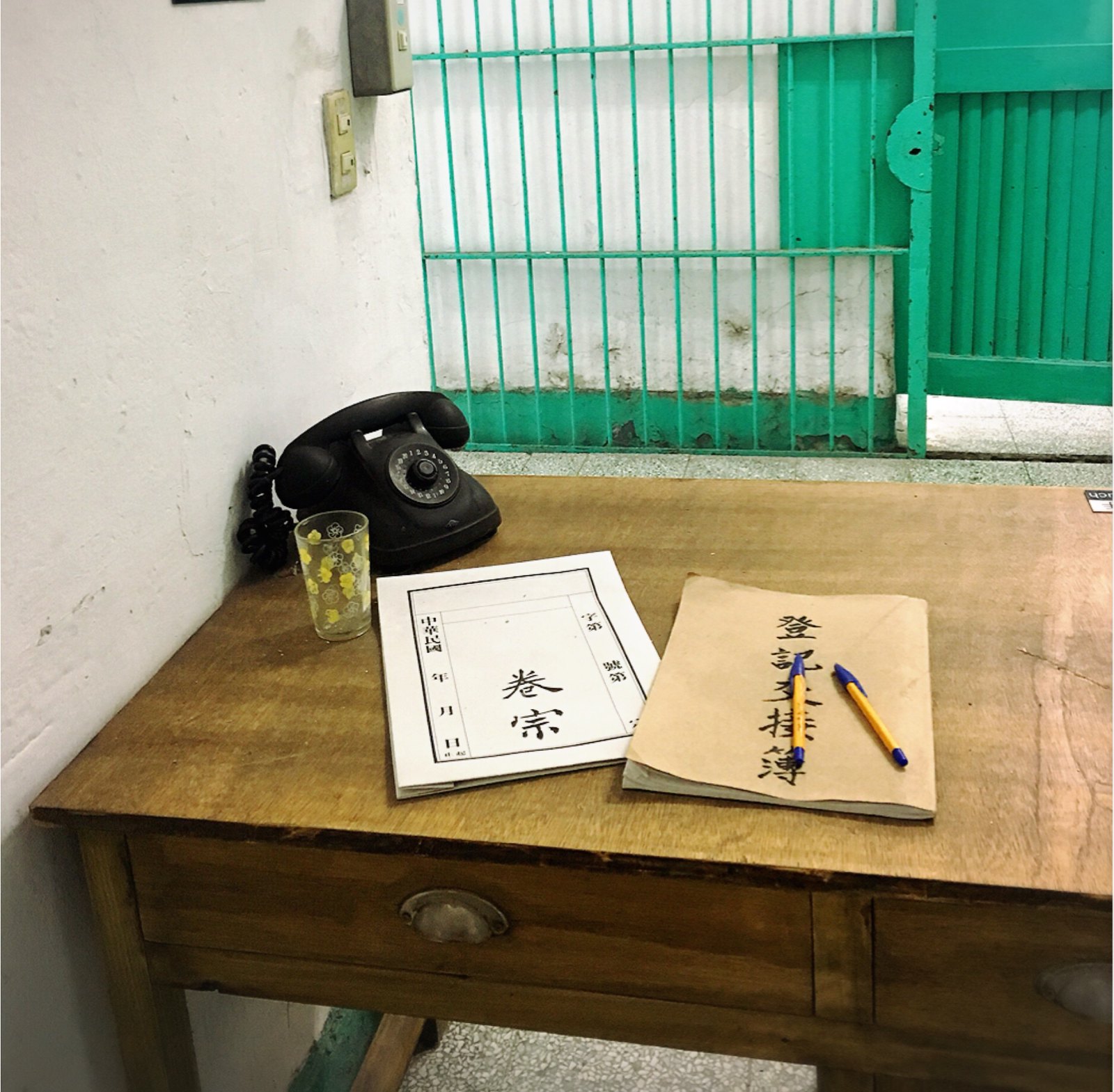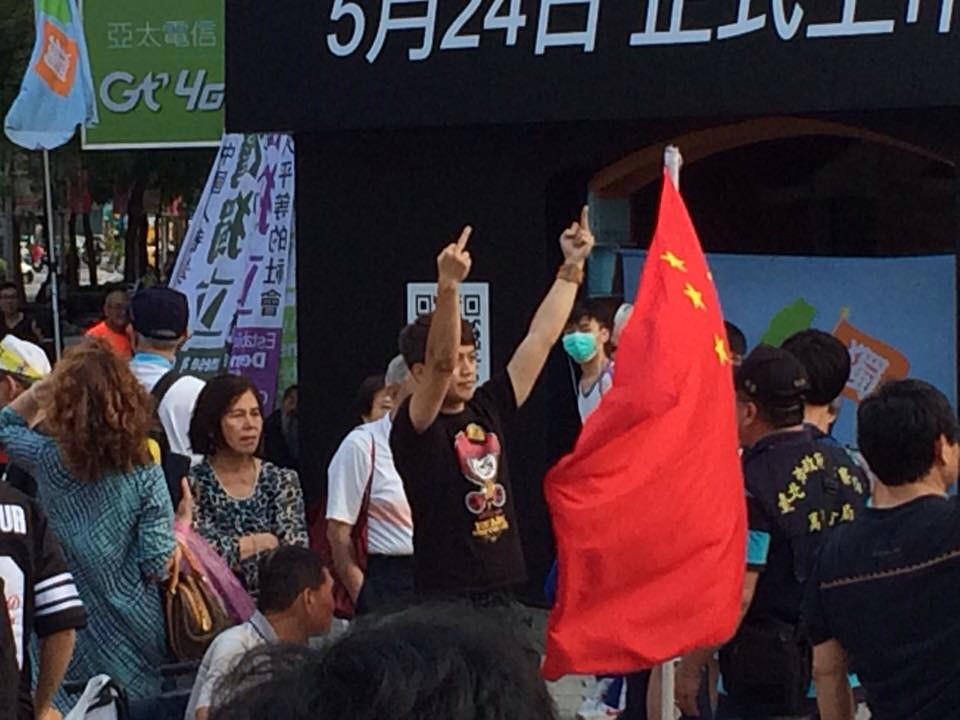 |
| AAAAHHHH |
Most people teach their kids about "stranger danger" - not to go off with people you don't know, or in a more modern sense, "here's how to spot situations that don't feel right".
It seems Taiwan, through its blossoming from a nascent sense of individual identity into a fully mature and independent nation, has learned this lesson well.

So when Haixia, a helmet-haired Chinese anchorwoman and Stern Aunt Who Is Spanking You For Your Own Good, spoke about China's
The creepiest moment was when she said "Wan-wan, come home" (灣灣回家吧), using a made-up and frankly condescending diminutive for Taiwan, in exactly the same tone of voice an abuser uses to try to manipulate their target when they think they can leverage whatever sentimentality exists in the relationship to pull them back into that void.
 |
| I'm not the only one making memes of it - art by A Ray |
Speaking of voids, the pan-blue media didn't seem to report on Haixia's Abuser Masquerading As Loving Mother act at all, as far as I can find. TVBS talked about the
On that side, only somewhat more reputable United Daily News (pan-blue) covered the story, and even they went with a straight report that independent legislator Hung Tzu-yung (洪慈庸) reacted by saying "Taiwan is already home."
In fact, the Taiwanese reaction in general was...not pleased (here's a summary in English). And why shouldn't they feel that way about essentially being nicknamed wayward children?
Given that this reaction was inevitable, who is the CCP trying to reach with Haixia's Creepy Mother spiel? Probably their own people, giving Chinese social media users a chance to watch, share and marvel at how benevolent their government is. It's not like many (or any) people in Taiwan seriously watch CCTV anyway. They don't really care about Taiwan's reaction. It wasn't really intended for Taiwan.
 |
| Art by nagee |
But other moments caught my attention too: when she talked about how "Taiwan compatriots will be treated the same as Mainland compatriots", my first thought was utter terror and I gather plenty of Taiwanese had the same reaction. Being treated like a citizen by the Chinese government sounds absolutely horrifying. Who would want that? Do they really think they treat their own 'compatriots' well enough that Taiwanese would think "hey that looks great, sign me up for social credit and getting shot in the face for protesting!"?
This prompted Liberty Times to write about Haixia's soapbox whinge by running a picture of an Uighur detention camp and asking, "if you want Taiwan to 'come home', why don't you let [Xinjiang concentration camp detainees] go home first?"
Of course, Taiwanese wouldn't have to worry about being sent to a Xinjiang detention camp - I'm sure they'll set up plenty of them in Taiwan once we 'come home'. After all, they'd treat Taiwanese 'just like' their own citizens, right?
Haixia went on to say that "we are sincere because we all have Chinese hearts" and "Taiwan's destiny is with the motherland", adding that "some people are not pragmatic and have been spreading strange rumors and slander - if they don't have a Chinese heart, how can they understand our sincerity?"
This part horrified and interested me in equal measure, but also clarified their true beliefs: that identity - Chinese identity in particular - is something that can be assigned and enforced, rather than something that is cultivated naturally through cultural and historical evolution. What it means can also be decided by them. If you are 'Chinese', you must agree. If you don't, either you are a traitor, or you were never Chinese and cannot understand why all Chinese do agree.
It won't work, of course. For it to be true, Taiwanese would have to agree that they are indeed Chinese, and buy into the notion of what it means to have a "Chinese heart". Clearly, they don't. Telling someone what their identity is never works in the long run anyway. Just look at...well, history.
It's also interesting that they're still trying to implicitly push this narrative that the people who "don't have a Chinese heart" are a minority of splittist troublemakers. If you read between the lines, what Haixia is saying only makes sense if the vast majority of Taiwanese agree that they are Chinese, in the sense that the CCP expects. Otherwise the majority of Taiwanese could be said to not have "Chinese hearts", which means of course they "can't understand" China, and if that's true, shouldn't China just give up on them as "not Chinese"?
It's kind of telling that they can't, or won't, give up on that line of reasoning. Not just because do admit the truth is to make it impossible for them to reasonably pursue their annexationist goals, but because it lays bare what's really going on: the CCP has never cared what the Taiwanese actually think in the first place, so it doesn't matter if it's decided for them. You know, kind of like they do with Chinese citizens. Equal treatment!
Finally, in the English media, Reuters noted that the CCP also promised to respect Taiwan's "way of life":
China will “fully respect” Taiwan’s way of life and social system once it has been “peacefully reunified”, as long as national security is protected, the ruling Communist Party said on Tuesday, in another overture to the self-ruled island....
“Under the premise of ensuring national sovereignty, security, and development interests, after peaceful reunification, the social system and way of life of Taiwan compatriots will be fully respected,” it said.
“Private property, religious beliefs, and legitimate rights and interests of Taiwan compatriots will be fully protected.”
Note that among the things to be "respected", democracy is not listed, but property is. The CCP apparently would get to decide what aspects of Taiwan's way of life are "legitimate" - just as they get to decide both who is Chinese and what it means to be Chinese - and you can surely expect that any sort of non-approved belief or attempt at continued democracy or even basic freedom of speech would be construed a threat to "national security" and therefore "not legitimate". "Rights and interests" is too general a phrase both in Chinese and English to mean anything, other than what the CCP wants it to mean when it says those words.
Apparently, the CCP doesn't think that Taiwanese follow the news. If China respected the "way of life" of various groups of citizens, Hong Kong wouldn't be foggy with tear gas (but of course, they can't accept that Hong Kongers don't, by and large, support the CCP or their version of "Chineseness"). If they respected "religious beliefs", Xinjiang wouldn't be death camp central.
But then, do the Taiwanese they are trying to reach actually follow the news? They might, but the sources they read don't report the full extent of what's going on in Hong Kong or Xinjiang. Instead, it's a never-ending stream of Big Uncle Dirk interspersed with calling anyone who isn't KMT complicit in the "Green Terror". And China is aware of that.
By the way, if you ever get tired of the real lefties banging on about how capitalism is evil, remember this. Free markets may not be inherently evil, but if capital and power weren't intertwined, what reason would these political figures and media outlets have to keep their audiences mostly in the dark about the way China treats its own people? Is it because they have "Chinese hearts" or because they personally stand to profit? Hmm.
So, while the whole "Wan-wan, come home" thing was not actually meant to convince Taiwanese people that China is sincere and trustworthy, the "26 measures" do aim at Taiwanese who watch blue-leaning news, which is to say, fake news. The candy might actually look tempting if you've been conditioned not to fear the dude in the van.
It has nothing to do with "Chinese hearts" and everything to do with candy.
Or, as Reuters put it:
China has not explained how Taiwan’s democracy may be allowed to continue if it takes control of the island.
Yeah, because it won't.
It won't be deemed "legitimate".
China's just hoping we don't notice that they never said otherwise.


